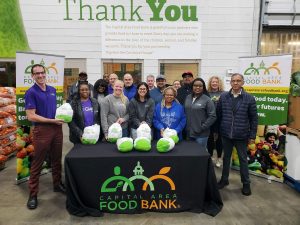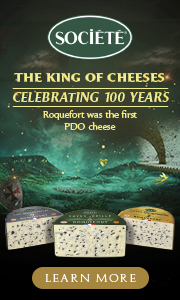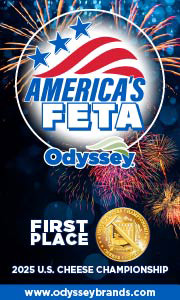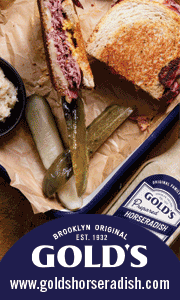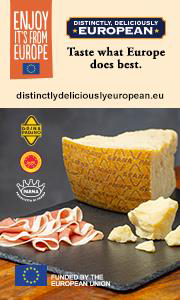Giant Food, Shady Brook Farms Donate 11K Turkeys to Food Banks
Giant Food, the leading greater Washington, D.C. regional grocery chain, has announced its annual holiday turkey donations. In partnership with Shady Brook Farms, Giant Food will be donating 11,000 turkeys to its local Feeding America food banks partners as well as local organizations including Martha’s Table, Men Aiming Higher, THEARC: Building Bridges Across The River, Greater Washington Urban League and Greater Baltimore Urban League. Since 2011, Giant has donated 62,000 turkeys during Thanksgiving and this year, Shady Brook Farms is generously providing additional turkeys to make an even larger impact.
“At Giant, fighting food insecurity in the communities we serve is one of our top priorities,” said Dyani Hanrahan, vice president of marketing and community relations, Giant Food, and Maryland Food Bank board member. “We are proud to support over 20 community organizations this Thanksgiving in partnership with Shady Brook Farms to make sure our neighbors in need enjoy their holiday celebrations with family and loved ones.”
“At Shady Brook Farms, we take great responsibility in not only giving back during the critical holiday season, but also throughout the year to ensure families and local communities have access to delicious and nutritious meals,” said Hannah Kern, Shady Brook Farms marketing manager. “Partnering with a like-minded organization such as Giant Food to provide turkeys to those in need is incredibly meaningful and we’re beyond appreciative of their collaboration on impactful initiatives such as this.”
Additionally, Giant launched the annual “Lend a Hand for Hunger” campaign to benefit five area Feeding America food banks – Capital Area Food Bank, Maryland Food Bank, Food Bank of Delaware, Fredericksburg Regional Food Bank and Blue Ridge Area Food Bank – and other area nonprofits.
The campaign, running from Oct. 27 to Dec. 31 in all 164 Giant stores, offers customers an opportunity to support their neighbors by rounding up their change to the nearest dollar amount during checkout in-store or selecting a donation of $1, $3 or $5 during checkout in-store or online. Last year, through the generous support of associates and customers, over $1 million was raised to fight food insecurity.
For news of interest to the grocery industry, subscribe to Gourmet News.
Publix Shuffles C-Suite as CEO Jones Becomes Executive Chairman
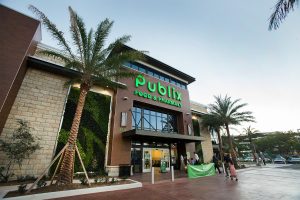 Effective Jan. 1, Publix CEO Todd Jones will become executive chairman, President Kevin Murphy will be promoted to CEO, and Senior Vice President John Goff will be promoted to president. Chairman of the Board Ed Crenshaw will remain on the board of directors as chairman emeritus.
Effective Jan. 1, Publix CEO Todd Jones will become executive chairman, President Kevin Murphy will be promoted to CEO, and Senior Vice President John Goff will be promoted to president. Chairman of the Board Ed Crenshaw will remain on the board of directors as chairman emeritus.
Jones began his career in 1980 as a front service clerk in New Smyrna Beach, Fla. He worked in various positions before becoming a store manager in 1988. He was promoted to district manager in 1997, regional director in 1999 and vice president of the Jacksonville Division in 2003. In 2005, Jones was promoted to senior vice president of product business development. He was named president in 2008, CEO and president in 2016 and CEO in 2019.
“Todd has been an outstanding leader,” said Crenshaw. “He has been committed to continuing Publix’s success and passionate about the development and promotion of our associates. We’re pleased he will continue to provide leadership to our company as executive chairman.”
Murphy began his career in 1984 as a front service clerk in Margate, Fla. He worked in various positions before becoming a store manager in 1995. He was promoted to district manager in 2003, regional director in 2009, and vice president of the Miami Division in 2014. In 2016, Murphy was promoted to senior vice president of retail operations. He was named president in 2019.
Goff began his career in 1991 as a front service clerk in Jacksonville, Fla. He worked in various positions before becoming a store manager in 2005. He was promoted to district manager in 2010, regional director in 2014, and vice president of the Miami Division in 2019. In 2022, Goff was promoted to senior vice president of retail operations.
“We are delighted to have leaders with the experience of Kevin and John who are ready to take the next steps in their careers,” said Jones. “I am confident in their ability to lead our company into the future and to continue to make Publix a great place to shop for our customers and a great place to work for our associates.”
Publix, the largest employee-owned company in the United States with more than 250,000 associates, operates 1,358 stores in Florida, Georgia, Alabama, Tennessee, South Carolina, North Carolina and Virginia. For 26 consecutive years, the company has been recognized by Fortune as a great place to work. In addition, Publix’s dedication to superior quality and customer service is recognized among the top in the grocery business. For more information, visit the company’s newsroom at corporate.publix.com/newsroom.
For more news of interest to the grocery industry, subscribe to Gourmet News.
Liviri Gives E-Grocer Grant to Montana’s Madison Foods
 Liviri has selected the recipient of its first e-grocer grant program: Madison Foods, a locally owned, independent grocery store located in Ennis, Mont. Liviri, the leading innovator in reusable packaging solutions, developed the grant program to award resources to an independent grocer to drive operational excellence and optimize supply chain management for the ever-evolving e-grocery sector.
Liviri has selected the recipient of its first e-grocer grant program: Madison Foods, a locally owned, independent grocery store located in Ennis, Mont. Liviri, the leading innovator in reusable packaging solutions, developed the grant program to award resources to an independent grocer to drive operational excellence and optimize supply chain management for the ever-evolving e-grocery sector.
Madison Foods is the only grocery store in the Madison County area, serving 1,000 year-round residents and more than 4,000 additional seasonal residents during the summer months. Customers spanning a 50-mile radius utilize the grocer’s curbside pickup and delivery options, as Madison Foods is the only delivery option in the vicinity. With an increased demand during the warm summer months, it is more important than ever for the store to keep perishable foods in a temperature-safe zone for long periods of time. Liviri’s reusable, insulated Sprint totes provide an ideal solution.
“We’re honored to present Madison Foods with a grant package valued at over $7,000 to help them increase their e-grocery operational efficiencies and save them time and resources,” said Liviri General Manager Ken Longval. “Madison Foods is passionate about doing everything they can to serve their community, and it is evident they are ready to take their operations to the next level.”
Madison Foods was selected as the 2023 Liviri Independent E-Grocer Grant recipient because it demonstrated a strong need to increase business operational efficiencies for both storing and delivering perishables. Currently, the grocer is utilizing a basic residential refrigerator to keep groceries cold, and outdated coolers to transport perishable foods. While the team at the single location store works hard to keep up with demand, these operational constraints decrease the volume of deliveries it is able to fulfill. Madison Foods was seeking a better system for storing perishable foods after orders were shopped, as well as a better system to keep the foods at the appropriate temperature during deliveries or when storing orders for long periods of time.
“Right now, we have to make multiple trips in order to keep groceries cold during transit, which is not cost-effective,” said Chris Gentry, owner of Madison Foods. “With Liviri’s Sprint totes and a better storage system, we’ll be able to store food for significantly longer times, allowing us to deliver to more of our customers in one trip without worrying about spoilage.”
Madison Foods will be awarded the following:
- $5,000 cash (intended to help cover costs to build up tech platforms, freezers, fridges, and training)
- Liviri Sprint50 Insulated Totes
- Sprint50 Ice Packs and Dividers
- 2 Picking Carts
Liviri Sprint is a line of durable, reusable totes that helps grocers and produce shippers with staging and delivery. High-performance insulation provides flexible options for chilled storage, keeping contents in the safe temperature zone for 12+ hours and reducing the need for onsite and in-transit refrigeration. The products also help eliminate wasteful single-use packaging for a more sustainable last-mile solution.
Liviri is the leading innovator of reusable packaging solutions for thermal performance, operational efficiency and cost-effective scalability. Launched in 2019, and developed alongside leading nationwide shippers, Liviri’s startup strength stems from an Otter Products DNA rooted in protective case designs and thermal performance innovations. We offer the whole eGrocery package through a family of reusable, thermally protective totes and icepacks that provide durable, sustainable solutions to pick, pack, stage and deliver online grocery orders.
Madison Foods has been a locally owned, independent grocery store for 20 years in Ennis, Mont. It provides traditional brand-name items, natural and organic products, gluten-free selections, vegetarian products, bulk foods, and energy bars and drinks.
For more news of interest to the grocery industry, subscribe to Gourmet News.





